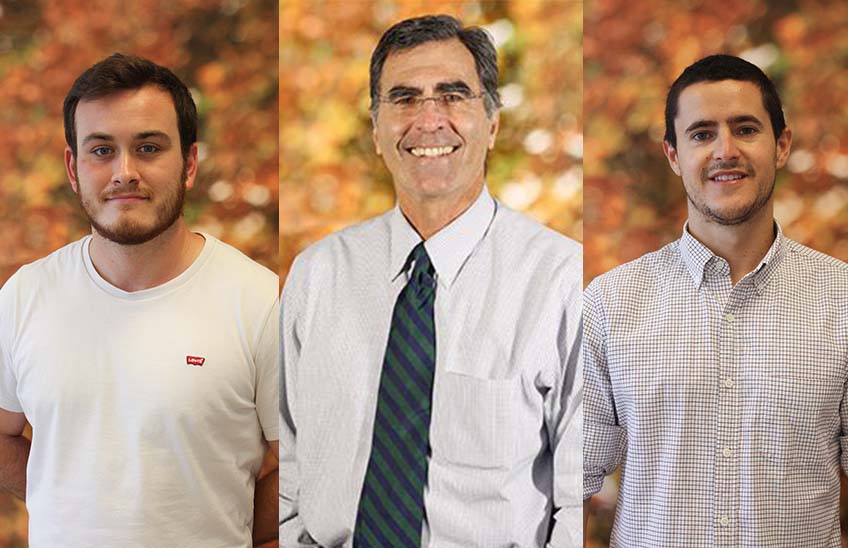News
LATEST NEWS AND EVENTS FROM THE SCHOOL OF ENGINEERING
The Provincial Council allocates grants to a quantum computing project driven by Tecnun
The project DECALOQC aims at design of quantum error correcting codes with improved functionalities by taking advantage of the so-called degeneracy property.

PhotoPaulaBerroa/Josu Etxezarreta, researcher principal Pedro Crespo, and Patricio Fuentes
10 | 12 | 2021
The Provincial Council of Gipuzkoa-Gipuzkoako Foru Aldundia has launched a new line of aid called Gipuzkoa Next, aimed at supporting projects linked to quantum computing.
TecnuntheSchool of Engineering of the University of Navarra, is working on the design of degenerate quantum codes of large block lengths. Specifically, in the project: 'DECALOQC, Degenerate quantum error correction and theoretical limits of time-varying quantum channels', which has as goal the design of quantum error correcting codes with better functionalities taking advantage of the so-called degeneracy property and the study of the theoretical limits of error correction against variable noise, "so that engineers know how good their methods can be", says Pedro Crespo, professor of Tecnun and researcher principal of project.
One of the peculiarities of quantum error correction codes is degeneracy, a mechanism by whichmultiple distinct errors can be corrected by the same operation. However, since there is no equivalent phenomenon in the classical communications paradigm, academic community lacks a proven means to detect and exploit degeneracy.
This work begins with the translation and transformation of matrix algebra concepts used in the classical coding world to the quantum environment, followed by verification through computer simulations. Subsequently, once the validity of the method has been verified, it can be used to construct 'degenerate' correcting codes that exploit the advantageous degeneracy property to the full. In this way, it is intended to present a construction of degenerate quantum codes that can be used to protect today's quantum computers and those of the future against quantum noise.
The construction of quantum error correcting codes requires a prior knowledge of the nature of the noise they will combat. Recently, researchers in the Mathematical Principles group at Tecnun have proposed a novel mathematical model known as time-varying quantum channel to describe the noise arising in a quantum computer. This mathematical model provides a more realistic description of the decoherence suffered by superconducting qubits, in which their decoherence times have been experimentally observed to vary in time. Superconducting technology is the most widely used technology today to build qubits, used by technology giants such as Google, IBM or Intel.
Within this context, another objective of project DECALOQC is to study the theoretical limits of quantum error correction when considering time-varying channels. These theoretical bounds represent the best performance that error correcting codes can achieve if properly designed against such noise models. In this way, such bounds illuminate the path for engineers trying to build error-correcting codes.
On the other hand, it is worth mentioning thatthe Mathematical Principles group of Tecnun is also involved in two new quantum projects. One with the Ministry of Science and Innovation, and the other project within the National Quantum Computing Plan of the same Ministry.
